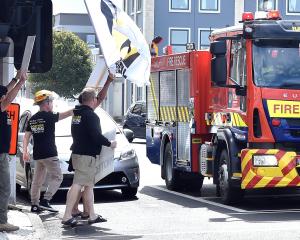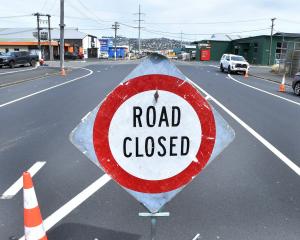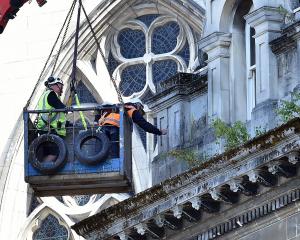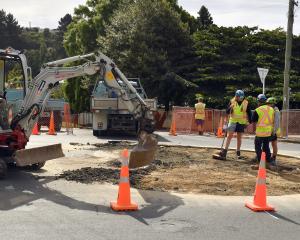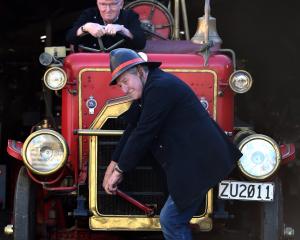After issuing more than 1000 speeding tickets in two weeks, Dunedin police say they are disturbed so many Dunedin people are still speeding despite knowing the carnage it can cause.
Police issued 1144 speeding tickets in a two-week operation that ended on Saturday.
The tickets were issued to people driving in Dunedin, most (422) to people speeding in Caversham Valley Rd.
Although analysis of the tickets has yet to be done, most would have been issued to people travelling between 11kmh and 20kmh over the speed limit, Acting Traffic Sergeant Andrew Camp said.
During "Operation Stop Speeding", the only place police groups issued tickets to people going less than 10kmh over the limit was outside schools.
An infringement notice for someone travelling more than 10kmh but not more than 15kmh over the speed limit is $80, making the minimum total of fines to be collected as a result of the exercise $91,520.
Of those ticketed, five had their driver's licences suspended for exceeding the posted speed limit by more than 40kmh, which also brings a fine of $510.
A further 25 people were issued with seatbelt infringement notices.
People continued to speed even though there was a high level of awareness of its consequences, Sgt Camp said.
"It is well known that the faster you go, the bigger the mess, particularly in an urban environment, where pedestrians are more likely to step out in front of a vehicle," Sgt Camp said.
The two-week campaign focused on Caversham Valley Rd, Kaikorai Valley Rd, Brighton Rd and the Southern Motorway.
One man who verbally abused an officer issuing him a speeding ticket was also convicted and fined $400 in the Dunedin District Court.
It was the man's second speeding notice in two days, Sgt Camp said.
Dunedin police emergency response group manager Inspector Alastair Dickie said the number of people caught speeding during the operation was as disappointing as a police operation that caught at least 20 people drink-driving last weekend.
The intelligence levels of people speeding and drink-driving had to be questioned when so much advertising had been directed at the hazards of doing both and the carnage it could cause, he said.
Neither operation was about revenue gathering, he said.
It was about trying to change people's attitudes to save lives.
If so many were caught by police in the two operations, how many were not, he wondered.
"We would rather not apprehend any such drivers. That would signal to us people are learning; this result tells us they are not."


